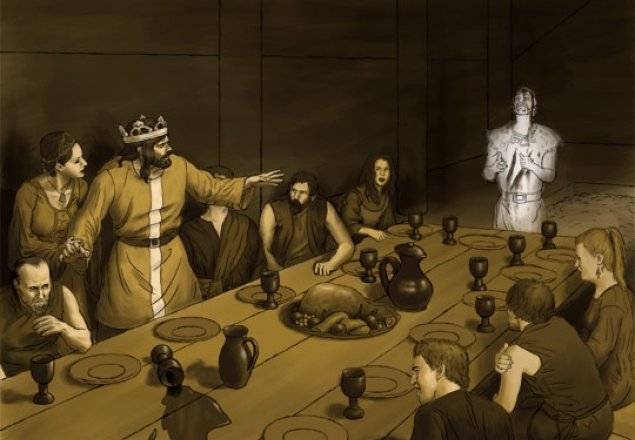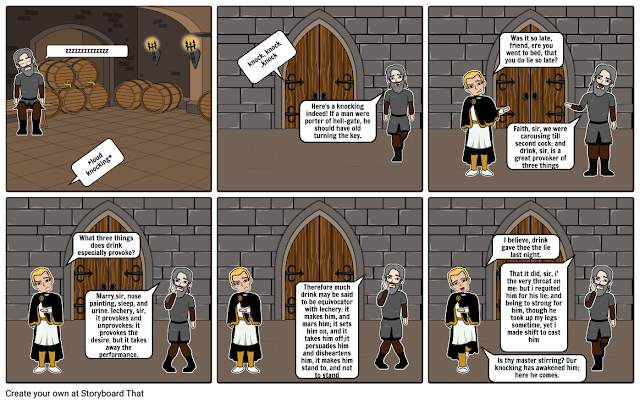Charles Dickens's Hard Times: Some Critical Points
Introduction
Hard Times by Charles Dickens brings into the forefront a host of social, political and economic issues confronted by the urban, continuously industrialized England in the mid nineteenth century. The imaginary Coketown -- an industrial township -- provides the perfect backdrop of the novel which critically examines the condition of the working class and tries to present a critic to the same in its own clandestine way. One needs to remember, like Chaucer, Dickens too was a keen observer throughout his life and in his detailed description of the life and times that he was part of, lies the subtle satire meant to nudge the powers that be to his own quite romantic vision of life where he could neither reject nor accept in its completeness the changing reality of his day -- an utilitarian completely materialistic society bent paradoxically upon serving the the self and self alone in stead of bringing about the greatest good for the greatest numbers.Utilitarianism and Classical Economics
In Hard Times, the ideas behind Utilitarianism, statistical economics, and the way they may shape government and educational policy all run together to present a bleak future for the children raised under them in the Victorian England. Those who idealize these social sciences imagine a logical world run according to the dictates of the marketplace. In this novel, Dickens presents us with some children raised and educated under this system. Their emotions are repressed, their imaginations starved, and their creativity discouraged. As a result, they grow into adults that don't know how be moral and are unable to understand or emotionally connect with one anyone.The Mechanization of Human Beings
Hard Times suggests that nineteenth-century England’s overzealous adoption of industrialization threatens to turn human beings into machines by thwarting the development of their emotions and imaginations. This suggestion comes forth largely through the actions of Gradgrind and his follower, Bounderby: as the former educates the young children of his family and his school in the ways offact, the latter treats the workers in his factory as emotionless objects that are easily exploited for his own self-interest. On the other hand we find a clear process in which the workers in factories are dehumanized lacking in all that is needful to lead a honorable life, money respect and honesty all included. They are reduced to being 'hands' that merely work mechanically without an iota of individuality. In Chapter 5 of the first book, the narrator draws a parallel between the factory Hands and the Gradgrind children—both lead monotonous, uniform existences, untouched by pleasure. Consequently, their fantasies and feelings are dulled, and they become almost mechanical themselves.
The mechanizing effects of industrialization are compounded by Mr. Gradgrind’s philosophy of rational self-interest. Mr. Gradgrind believes that human nature can be measured, quantified, and governed entirely by rational rules. Indeed, his school attempts to turn children into little machines that behave according to such rules where students become no individuals but are numbers. Dickens’s primary goal in Hard Times is to illustrate the dangers of allowing humans to become like machines, suggesting that without compassion and imagination, life would be unbearable. Indeed, Louisa feels precisely this suffering when she returns to her father’s house and tells him that something has been missing in her life, so much so that she finds herself in an unhappy marriage and may be in love with someone else. While she does not actually behave in a dishonorable way, since she stops her interaction with Harthouse before she has a socially ruinous affair with him, Louisa realizes that her life is unbearable and that she must do something drastic for her own survival. Appealing to her father with the utmost honesty, Louisa is able to make him realize and admit that his philosophies on life and methods of child rearing are to blame for Louisa’s detachment from others
Creativity and Imagination
Dickens clearly believes that creativity and imagination so ruthlessly suppressed by the flawed philosophy of utilitarianism need to be brought back in right earnest. He has more of a romanticmindset that yearns for such audacity. Paradoxically, in Hard Times, play and pleasure turn out to be a kind of work that is just as difficult as factory labor. No job is more physically demanding than that of the circus performers, who are bruised and beaten daily in order to create an imaginative release for the otherwise mundane lives of their audience. The novel's takeaway message is repeated by Mr. Sleary, the circus master: "the people must be amused" if they are to remain human. If this impulse toward what Dickens calls "fancy" is ignored, it transforms into harmful self-justification, destructive myth-making, and unethical deception.
The Opposition Between Fact and Fancy
While Mr. Gradgrind insists that his children should always stick to the facts, Hard Times not only suggests that fancy is as important as fact, but it continually calls into question the difference between fact and fancy. Dickens suggests that what constitutes so-called fact is a matter of perspective or opinion. For example, Bounderby believes that factory employees are lazy good-for-nothings who expect to be fed “from a golden spoon.” The Hands, in contrast, see themselves as hardworking and as unfairly exploited by their employers. These sets of facts cannot be reconciled because they depend upon perspective. While Bounderby declares that “[w]hat is called Taste is only another name for Fact,” Dickens implies that fact is a question of taste or personal belief. As a novelist, Dickens is naturally interested in illustrating that fiction cannot be excluded from a fact-filled, mechanical society. Gradgrind’s children, however, grow up in an environment where all flights of fancy are discouraged, and they end up with serious social dysfunctions as a result. Tom becomes a hedonist who has little regard for others, while Louisa remains unable to connect with others even though she has the desire to do so. On the other hand, Sissy, who grew up with the circus, constantly indulges in the fancy forbidden to the Gradgrinds, and lovingly raises Louisa and Tom’s sister in a way more complete than the upbringing of either of the older siblings. Just as fiction cannot be excluded from fact, fact is also necessary for a balanced life. If Gradgrind had not adopted her, Sissy would have no guidance, and her future might be precarious. As a result, the youngest Gradgrind daughter, raised both by the factual Gradgrind and the fanciful Sissy, represents the best of both worlds.Education
There is a strong case made in Hard Times that education is not simply the classroom experience of memorizing facts. The novel expresses the view that having an emotional component to our education is crucial. It's also shown in the novel that this kind of learning can happen at any time in life. Learning about the way other people live is the groundwork for valuing them as fellow creatures; learning about them only in terms of their productivity is a recipe for class warfare. If this proper groundwork is not laid, then a perverted kind of learning can take its place, full of cynicism and misanthropy.Wealth
Hard Times definitely has a specific view on wealth. In this novel, the gulf between rich and poor is vast and cannot be bridged, despite the myth created by the rich that the poor can lift themselves up by their bootstraps. Those who rise do so at the expense of others, and even then their progress is slow, painful, and does not reach much higher than where they started – and anyone who says otherwise is telling self-serving lies. With wealth come options and opportunities for all sorts of abnormal and deviant behavior. With wealth also comes the privilege of escaping from paying for transgressions, and the chance to start life over fresh.Power
Power comes in several forms in Hard Times. On the one hand, the numerous factory workers represent a tremendous force, both in terms of their ability to operate machinery and produce goods, and in their ability to band together to form a union and go on strike. On the other hand, in their collective form they are viewed by their employers as disposable and almost non-human. This is made evident in the term "Hands," which reduces them to a single, non-thinking, non-emotional body part. The workers are patronized by the government and by ostensibly charitable organizations that study, analyze, and criticize their drinking, church-going, parenting, and any other quantifiable behavior.Femininity
In the Victorian ideal, a woman was the repository of family morality – the one who would not only nurture the bodies of her children and husband, but also their minds. The educational experiment Gradgrind undertakes is to our eyes quite progressive – teaching his girls and boys the same things and removing the burden of ideal femininity from his daughter. Unfortunately, this leaves her unprepared for entering the world outside her own progressive family. She is unable to fulfill the idealized roles of wife and mother, and has no other options for adulthood outside of these.During the Victorian era, women were commonly associated with supposedly feminine traits like
compassion, moral purity, and emotional sensitivity. Hard Times suggests that because they possess these traits, women can counteract the mechanizing effects of industrialization. For instance, when Stephen feels depressed about the monotony of his life as a factory worker, Rachael’s gentle fortitude inspires him to keep going. He sums up her virtues by referring to her as his guiding angel. Similarly, Sissy introduces love into the Gradgrind household, ultimately teaching Louisa how to recognize her emotions. Indeed, Dickens suggests that Mr. Gradgrind’s philosophy of self-interest and calculating rationality has prevented Louisa from developing her natural feminine traits. Perhaps Mrs. Gradgrind’s inability to exercise her femininity allows Gradgrind to overemphasize the importance of fact in the rearing of his children. On his part, Bounderby ensures that his rigidity will remain untouched since he marries the cold, emotionless product of Mr. and Mrs. Gradgrind’s marriage. Through the various female characters in the novel, Dickens suggests that feminine compassion is necessary to restore social harmony
Family, love & marriage
Hard Times expresses the opinion that even an ad hoc, somewhat messily organized family is the best kind of community structure, as long as there's love present. This is shown in the descriptions of Sleary's circus, easily the warmest and most caring of the novel's many groups. In this novel, when families are close emotionally, they provide a moral education that centers on self-sacrifice and altruism. The novel seems to be saying that this is the key to bettering society. On the other hand, when families are ruled by cold logic, they lose emotional connection, and society as a whole becomes totally self-serving.In Hard Times, love itself can be a positive or negative emotion, regardless of whether it occurs
between romantic partners or parents and children. There are examples of socially sanctioned and nurturing domestic love. There's also spiritually uplifting love that inspires better behavior and the improvement of the self. And finally there's disturbed love that overreaches the normal boundaries of the relationship.
There are no happy marriages in Hard Times. In Stephen's case, it focuses instead on a missed opportunity for true companionship. In the case of the Gradgrinds, you've got an entirely intellectually unequal match where spouses are indifferent to each other. Then there's a loveless disaster where husband and wife grow to hate each other in the case of Louisa and Bounderby. The only happy unions are mythic, have occurred in the past, or are just barely implied, as in the case of the Jupes or Sissy and her eventual family.








Comments
Post a Comment